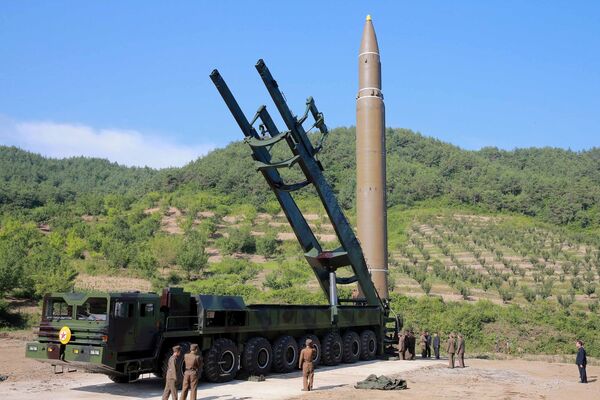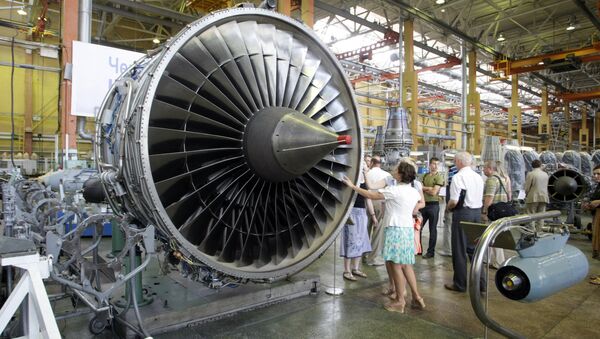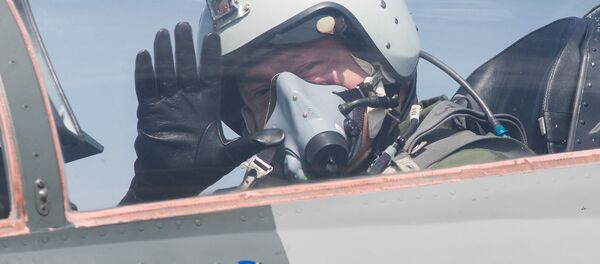Last week, a court in Kiev froze a 56% stake in Motor Sich Company belonging to Beijing Skyrizon Aviation Industry Investment Co amid allegations by the Ukrainian Security Service that the sale was illegal, and aimed at stripping the company of its assets and liquidating it.
Commenting on the fate of the legendary company in an analysis piece for Sputnik, Russian military observer Vasily Kashin noted that the story surrounding the Ukrainian-Chinese military technology trade goes back decades. He recalled that after the collapse of the Soviet Union, Kiev quickly became the second most important source of military technology for China after Russia.
Kashin added that notwithstanding the strong influence the US would have over Ukrainian politics starting in the 1990s, "Washington did little to stop this cooperation. The Americans intervened only in instances of particular importance, such as Kiev's attempt to supply a number of Soviet Kh-55 [long range] cruise missiles to Iran and China in the early 2000s."
"US inaction could be partly due to ignorance, or arrogance," Kashin suggested. "In spite of the presence of a large number of American advisers in Ukraine for many years, including in the country's military structures and security services, the events of 2014 showed that the US had a poor understanding of the real situation in the country. Nevertheless, judging by recent publications in the US press and specialized publications, the subject of Ukrainian military technical cooperation with Asian countries has started to attract growing interest."
After the deterioration in relations with Russia in 2014 and the loss of the Russian market shortly thereafter, the aircraft engine maker turned to China. Until recently, Kashin wrote, "the contacts between Motor Sich and the Chinese were met favorably by Ukrainian authorities. In May, Deputy Prime Minister Stepan Kubiv called plans to produce and service aircraft engines in Chongqing, central China using Ukrainian technologies a 'great achievement'."
At that time, Beijing Skyrizon also promised to invest $250 million US in Motor Sich's Ukrainian plants.
Now, based on the investigation by the Security Service and the seizure of the Chinese investors' stake in Motor Sich, Kashin suggested that "it's possible that this cooperation has finally attracted Washington's attention."
"If the existing projects on joint ventures and technology transfer are stopped under pressure from Ukraine's security services, China will have to go back to the old methods of attracting these technologies: purchasing individual licenses and documentation, and inviting individual specialists [to China]. This could significantly slow the progress of Chinese programs."
According to Kashin, if Motor Sich is a politically motivated play by Washington to 'get Kiev back in line', China can expect problems in cooperation with other enterprises in Ukraine's military-industrial complex as well, particularly Yuzhmash, the aerospace firm which US media recently claimed was behind the successes of the North Korean missile program.

Ultimately, the observer stressed that "the risks associated with cooperation with a US client state with no independent foreign policy should have been obvious to China. In this respect, the lesson of Sino-Israeli military-technical cooperation is indicative. In the early 2000s, under US pressure, Israel in an instant sacrificed many years of ties with Beijing."
That affair forced Israel Aerospace Industries and other Israeli companies to abandon several high-profile projects with Beijing, leading to breach of contract penalties, as well as significant reputational losses.
"It's entirely possible that something like this now awaits Sino-Ukrainian cooperation as well," Kashin concluded.



